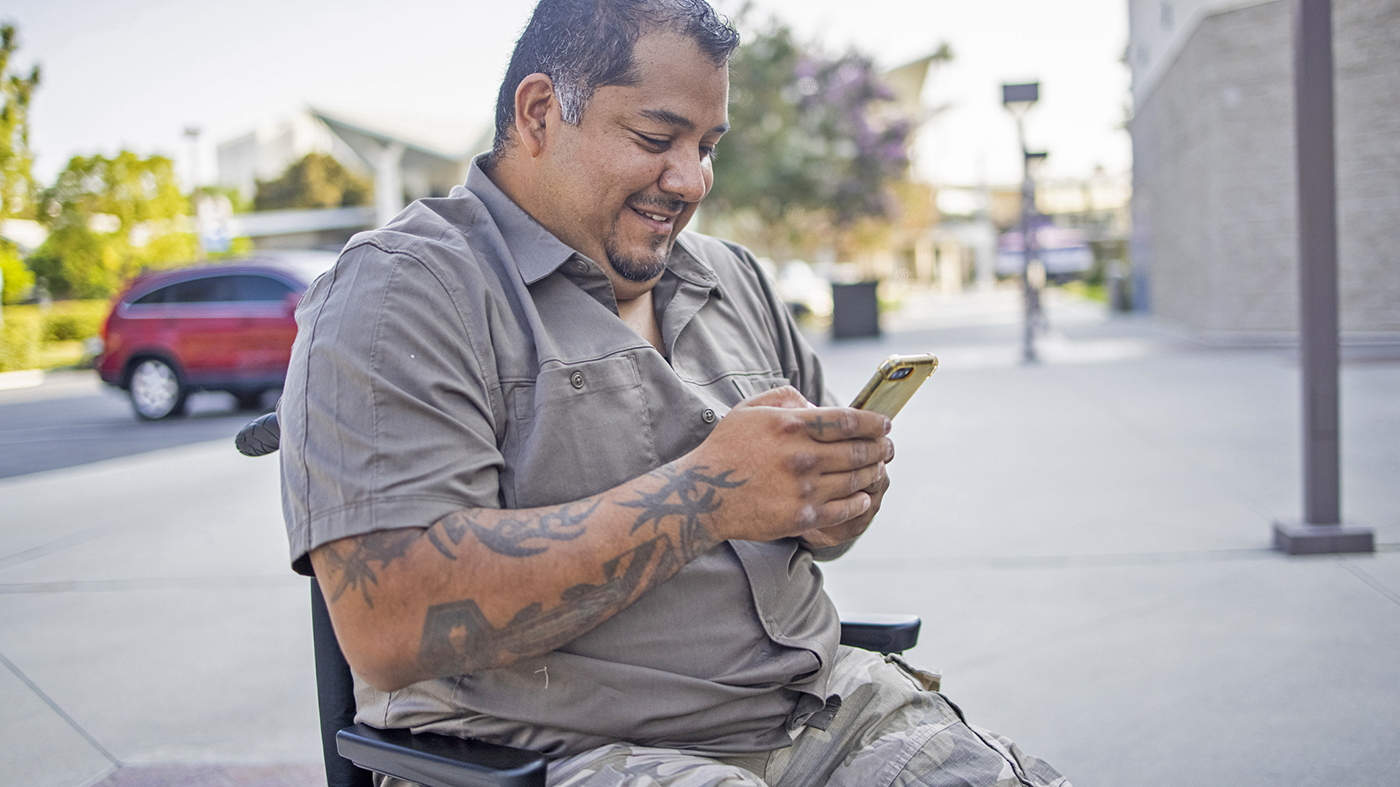In the United States, an estimated 21.2% of adults have arthritis. That’s more than 53 million Americans.
Arthritis refers to any disorder that affects the joints—with the most common types being osteoarthritis, gout and rheumatoid arthritis. Primary care providers may refer Veterans with arthritis to a rheumatologist, a specialist who treats arthritis and other autoimmune conditions.
Due to a nationwide shortage of rheumatologists, access to care is constrained, particularly in rural locales. To better serve our Veterans, VA will be instituting the National TeleRheumatology Enterprise-Wide Initiative in 2024. The TeleRheumatology program enables Veterans to connect with a rheumatologist remotely for diagnostic and follow-up appointments. This saves Veterans from traveling long distances for an in-person appointment.
Natalia Brown is a physician assistant at Pittsburgh VA. She treats Veterans in Pennsylvania, West Virginia and Ohio through TeleRheumatology.
“TeleRheumatology is a great option because we never want to have a Veteran miss a follow-up because of distance or commuting,” Brown said. “We pride ourselves in maintaining a very steady relationship and open lines of communication. Because if we lose follow-ups, conditions flare.”
Simple, convenient process
As arthritis and other rheumatic diseases are chronic conditions, Brown says she sees Veterans “for life.” Most Veterans typically require a check-in every three to six months following their diagnosis.
Through TeleRheumatology, Veterans can meet with their provider from home through VA Video Connect, VA’s secure video conferencing app. They can also visit a VA facility that offers telehealth services on-site.
During follow-up appointments through VA Video Connect, a VA provider will help Veterans manage their treatment plans, talk over any new swelling or pain, discuss medications and more.
Brown says she is currently treating a 92-year-old Veteran who lives over four hours from the VA clinic.
“Especially for our older populations, driving to the Pittsburgh facility can be really challenging for them,” said Brown. “I always let our patients know that ‘if you can’t come in, please let me know and we’ll change it to video.’”
Shawntell’s TeleRheumatology story
Shawntell is an Army National Guard Veteran who served from 2008 to 2018. While on active duty, Shawntell was diagnosed with a connective tissue disorder. Following her diagnosis, she was driving over 90 minutes each way to Pittsburgh VA for her rheumatology care.
“When we started doing the VA Video Connect sessions, it really helped me still get the help I needed without having to put my body in pain.” Shawntell said she enjoys having the option of going in person or switching to a virtual appointment, especially on days when she may be dealing with more pain and swelling.
“My provider at VA TeleRheumatology does a really good job at keeping up and checking in with me. I think this is a great service,” she added.
If you think you may benefit from TeleRheumatology care, talk with your VA care team. To learn more about telehealth, visit the VA Telehealth Services page.
Topics in this story
More Stories
In a decentralized clinical trial, Veterans can participate from their own homes or local VA instead of having to travel to a research site.
After serving in the Air Force for 25 years, Larry Wilson is now a My HealtheVet coordinator helping Veterans navigate their care.
Veterans across all 18 VISNs can use VA Health Chat to send messages to VA staff for questions about their health.







My recent blood work reflects H-ANA Titer, w/ presence of Cytoplasmic fluorescence. My initial referral appt. w/ a Rheumatologist is 5-months out. All assistance is greatly appreciated. Thank you!
Arthritis. I live in the Philippines.
I think this article could help with video connect more frequently. At this point I am willing to try anything.
I have only one visit per year at rheumatology Chalmers Wiley and my last visit I was told that here was nothing that can be done.
Basically, I can’t help you.